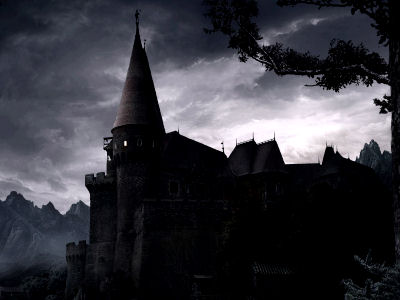The dichotomy between good and evil, light and darkness, is a trope central to fantasy literature and roleplaying games. Usually, there are certain creatures that embody the polar extremes of either side, being stand-ins for virtue or villainy. Elves and unicorns are magical beings of good and light, while trolls and red dragons are greedy, cruel creatures of evil and darkness. On its face, this does not seem overly controversial. Dragons will not be offended. It gets more complicated when near-human creatures are presented as being uniformly evil, savage, and of low intelligence, and with physical traits that mirror racist caricatures of racialized people in the real world.
Examples of racist caricatures can be found in many modern works of fantasy and science fiction. The Ferengi of Star Trek or the goblin bankers of the Harry Potter world, with their big ears and big noses, and their greedy, acquisitive natures have been called out as anti-Semitic caricatures.
In Star Wars, Jar Jar Binks is a clownish Caribbean caricature and the Neimoidians of the Trade Federation are caricatures of East Asians. The protagonists in these works, on the other hand, are generally white and have English accents, even in a galaxy far, far away.
J.R.R. Tolkien’s works are foundational to modern fantasy, and in them, there is a clear moral distinction between the good race of elves, for example, and the evil race of orcs. Elves are generally described as fair or pale-skinned, while orcs, who are brutish, ugly, aggressive, inherently evil monsters, are described as swarthy or sallow-skinned, flat-nosed, wide-mouthed, and slant-eyed. Tolkien’s legacy is felt in the popular Dungeons & Dragons roleplaying game where certain humanoid creatures are considered uniformly evil. Along with orcs and many others, one also finds drow or dark elves, subterranean and wholly evil beings who also happen to be dark-skinned.

I do not think the creators of any of these works had any racist intent. In Tolkien’s case, there is good evidence that he was actually anti-racist. However, the Eurocentric colonialist mindset of our culture runs deep, certainly more so in Tolkien’s day, and it can easily shape the moral geography of our imagined worlds, even ones ostensibly vastly different from our own. This ingrained prejudice holds whiteness as the human default, while dark skin and non-Caucasian physiognomy characterize Otherness.
The term race, when used in a fantasy or science fiction context, is about delineating alien or fantastical beings from human beings as a whole. Fantastic or alien races are more akin to different but closely related species. Diversity amongst humans then becomes something of a non-issue in these stories when faced with these Others. But it is often the Otherness of racialized people that is projected onto these fictional races or species.
As such, fantasy fiction often relies on categorical thinking, placing ideas, people, and things within categories to simplify and better understand them. It is something we do all the time to process information. But this categorization can lead to exaggerating differences between categories, to discriminate, pigeonhole, and stereotype. Good and evil are the most obvious categories but there are so many other binaries that one could name: order/chaos, masculine/feminine, sacred/profane, industrious/lazy, and so on. The races and cultures created by fantasy authors often embody certain extremes of such binary aspects, and they become monolithic or homogenous. Even though they aren’t real, we all have a good idea of what to expect from a proper elf or dwarf or halfling or orc. Or Klingon, Romulan, or Vulcan. (I mean if you’re into that kind of stuff.)
This particular kind of categorical thinking is known as essentialism, the belief that there are essential biological and behavioural traits that define members of a racial category. It is a core feature of the game mechanics of Dungeons & Dragons, where players create characters by choosing a race, which in turn affects one’s ability scores and attributes. It is an issue the publishers of the game have started to address and continue to tackle.
A common scene that plays out in many D&D games, is when the party of adventurers is faced with humanoid non-combatants i.e., captives or children. They have the dilemma of deciding their fate. If the creatures are inherently evil monsters, is it not best to dispatch them, even if they are helpless, lest they escape or grow up to cause more suffering? To kill or not kill the orc child, that is the terrible question that racial essentialism in fantasy forces us to ask.
So yes, fantasy is racist a lot of the time. This is not a snowflake’s cry of being offended, of trying to see racism in everything, or of trying to cancel anything. Nor is this to say that racism is the only takeaway from any of these works; they offer so many other lessons or explore other themes worth discussing. It is simply to identify the hidden prejudices that may lurk in our favourite fantasies and to be wary of them. Fantasy is wonderfully fun, as are its old familiar tropes. But we should remember that representation matters, that not everything is black-and-white, and that the best fantasy film and literature are those that defy stereotypes, cliches, and caricatures.











